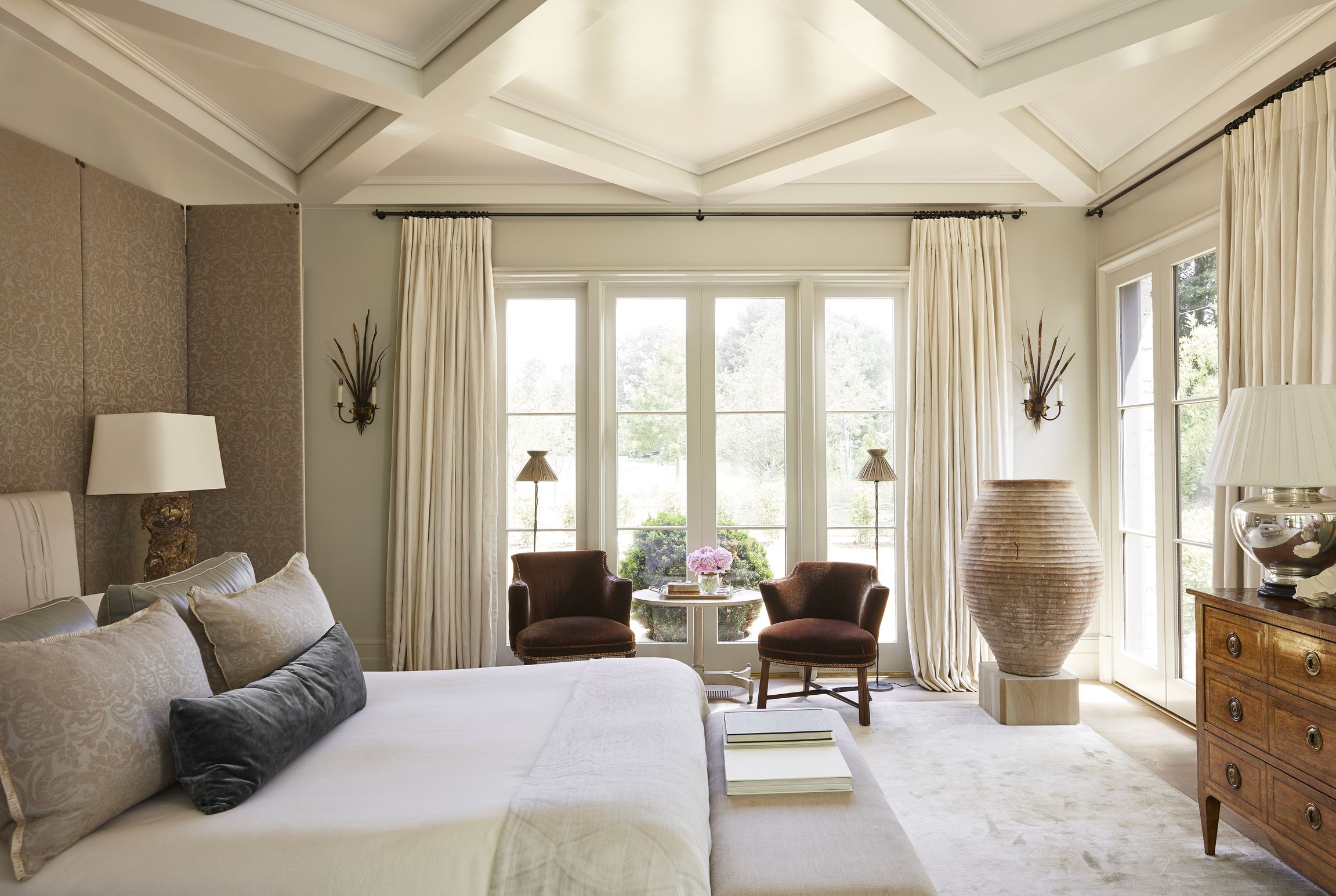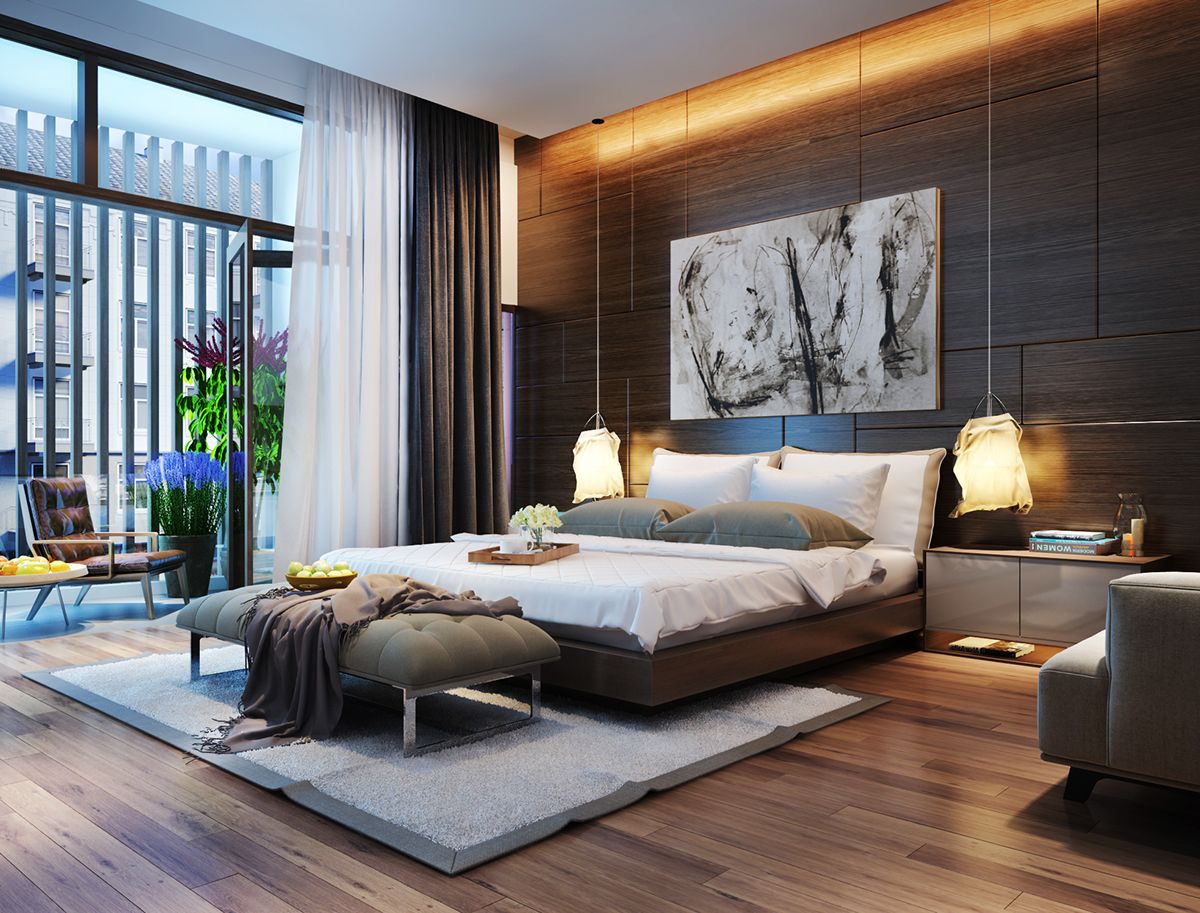Factors Influencing Bedroom Location

Choosing the ideal location for your bedroom is a crucial aspect of home design, impacting your sleep quality, comfort, and overall well-being. Several factors come into play when determining the best spot for your sanctuary.
Noise Levels
Noise levels are a significant factor influencing bedroom comfort. Excessive noise can disrupt sleep, leading to fatigue, irritability, and difficulty concentrating. The ideal bedroom location minimizes exposure to external and internal noise sources.
- External Noise: Traffic, construction, and loud neighbors can all contribute to noise pollution. Bedrooms located away from busy streets or noisy areas are preferable. Consider using noise-reducing features like double-paned windows or thick curtains to minimize noise penetration.
- Internal Noise: Household noise from appliances, conversations, or other activities can also affect sleep. Locating the bedroom away from high-traffic areas, such as kitchens or living rooms, helps reduce internal noise. Soundproofing materials can also be used to minimize noise transmission between rooms.
Natural Light
Natural light plays a vital role in regulating our sleep-wake cycle, known as the circadian rhythm. Exposure to sunlight during the day helps synchronize our internal clock, promoting better sleep at night.
- Sunlight Exposure: A bedroom with access to natural light, ideally morning sunlight, can help regulate sleep patterns. However, excessive sunlight can be disruptive, especially in the late afternoon or evening. Using blinds or curtains to control light levels is essential.
- Light Blocking: For individuals who prefer darkness for sleep, a bedroom located on the north side of the house, which receives less direct sunlight, might be preferable. Blackout curtains can be used to block out any remaining light.
Proximity to Other Rooms
The location of a bedroom in relation to other rooms in the house impacts convenience, privacy, and overall functionality.
- Convenience: A bedroom close to a bathroom or laundry room can be convenient, especially for older adults or individuals with mobility challenges. However, proximity to high-traffic areas like the kitchen or living room can be disruptive.
- Privacy: A bedroom located on a separate floor or away from shared living spaces offers greater privacy. However, it’s essential to balance privacy with convenience, especially for families with young children.
Upper Floor vs. Lower Floor
The choice between an upper floor and lower floor bedroom depends on personal preferences and lifestyle choices.
- Upper Floor Advantages: Bedrooms on upper floors often offer greater privacy, less noise from external sources, and potentially better views. However, they can be less accessible for individuals with mobility limitations.
- Lower Floor Advantages: Bedrooms on lower floors are typically more accessible and convenient, especially for older adults or families with young children. They may also be cooler in warmer climates due to their proximity to the ground. However, they may be more susceptible to noise from external sources.
Personal Preferences and Lifestyle Choices
Ultimately, the best bedroom location depends on individual preferences and lifestyle choices.
- Sleep Needs: Individuals who are light sleepers or sensitive to noise may prefer a bedroom located away from noisy areas. Those who value privacy may opt for a bedroom on a separate floor or away from shared living spaces.
- Lifestyle: Active individuals may prefer a bedroom located close to a gym or outdoor spaces. Families with young children may prioritize a bedroom on the lower floor for accessibility and convenience.
Optimizing Bedroom Placement for Functionality

A well-placed bedroom is the cornerstone of a comfortable and functional home. By strategically considering factors like natural light, ventilation, and privacy, you can create a sanctuary that promotes restful sleep and enhances your overall well-being.
Maximizing Natural Light
Natural light plays a crucial role in creating a welcoming and energizing bedroom atmosphere. Maximizing natural light not only brightens the space but also promotes a sense of well-being and connection to the outdoors.
- Orient the bedroom towards the east or south: These directions receive the most sunlight throughout the day, ensuring a bright and airy space, especially in the morning. This is particularly beneficial for early risers, as the morning sunlight can help regulate your sleep-wake cycle.
- Consider large windows: Large windows allow ample sunlight to flood the room, creating a sense of openness and spaciousness.
- Utilize window treatments: While maximizing natural light is essential, it’s also important to control the amount of sunlight entering the bedroom. Utilize curtains or blinds to adjust the light levels according to your preferences and the time of day.
Prioritizing Ventilation
Proper ventilation is crucial for maintaining a healthy and comfortable bedroom environment. A well-ventilated bedroom ensures fresh air circulation, which helps regulate temperature, reduces humidity, and minimizes the buildup of allergens and pollutants.
- Position the bedroom near a window or door: This allows for cross-ventilation, which helps draw fresh air into the room and expel stale air.
- Install a ceiling fan: A ceiling fan helps circulate air and can be used to create a cool breeze, especially during warmer months.
- Consider an exhaust fan: An exhaust fan in the bathroom can help remove moisture and odors, promoting a healthier and more comfortable bedroom environment.
Ensuring Privacy
Privacy is paramount in a bedroom, as it provides a sense of sanctuary and allows for restful sleep. A well-placed bedroom should offer a degree of seclusion from the rest of the house and the outside world.
- Locate the bedroom away from high-traffic areas: Placing the bedroom away from the kitchen, living room, or entryway minimizes noise and distractions, creating a more peaceful atmosphere.
- Consider soundproofing: If the bedroom is located near a noisy street or area, consider soundproofing techniques like double-paned windows, thick curtains, or sound-absorbing materials on the walls.
- Utilize privacy screens or hedges: If the bedroom has windows facing the street or neighboring properties, consider using privacy screens or hedges to block unwanted views and create a more secluded environment.
Creating a Functional Layout, Best location for bedroom
A functional bedroom layout is essential for maximizing space and creating a comfortable and efficient environment. Consider the following elements when designing your bedroom layout:
- Bed placement: The bed should be positioned in a way that maximizes natural light and ventilation. Avoid placing it directly in front of a window or door, as this can create drafts or disrupt sleep.
- Walk-in closet: A walk-in closet provides ample storage space and can be designed to maximize efficiency.
- En-suite bathroom: An en-suite bathroom offers convenience and privacy, eliminating the need to share a bathroom with other family members.
- Balcony: A balcony provides a private outdoor space where you can relax, enjoy fresh air, or simply enjoy the view.
Examples of Functional Bedroom Layouts
Here are some examples of bedroom layouts that incorporate specific features:
- Master bedroom with walk-in closet and en-suite bathroom: This layout is ideal for larger homes and provides ample space for storage, privacy, and convenience.
- Small bedroom with built-in storage and a balcony: This layout maximizes space in a small bedroom by utilizing built-in storage and providing access to a private outdoor area.
- Guest bedroom with a comfortable sitting area: This layout creates a welcoming and functional space for guests, allowing them to relax and enjoy their stay.
Bedroom Location and Feng Shui Principles: Best Location For Bedroom

Feng Shui, an ancient Chinese practice, emphasizes the harmonious arrangement of elements in a space to influence energy flow and create a balanced environment. Applying these principles to bedroom placement can significantly impact sleep quality, relationships, and overall well-being.
Bedroom Location and Energy Flow
Feng Shui believes that energy, known as “chi,” flows through spaces, influencing the occupants’ lives. The bedroom, being a space for rest and rejuvenation, requires a calm and positive energy flow.
- Direction: According to Feng Shui, the ideal direction for a bedroom is the southwestern sector, associated with love, relationships, and stability. This direction promotes harmony and peaceful sleep.
- Elements: The five elements of Feng Shui – wood, fire, earth, metal, and water – interact and influence energy flow. Placing the bedroom in a location that balances these elements is crucial. For example, a bedroom in the north (water element) might benefit from adding earth elements like wooden furniture or terracotta pottery to balance the energy.
Ideal Bedroom Location
The ideal bedroom location in Feng Shui is a space that promotes tranquility and restful sleep.
- Away from Disturbances: The bedroom should be situated away from noisy areas, such as kitchens, bathrooms, or entryways, to minimize distractions and promote a peaceful atmosphere.
- Avoid Obstacles: Feng Shui emphasizes unobstructed energy flow. Placing the bed against a solid wall and ensuring clear pathways around it facilitates positive energy circulation.
- Calm and Serene: A bedroom with a view of nature, such as a garden or trees, can promote a sense of peace and tranquility, creating a conducive environment for restful sleep.
Applying Feng Shui Principles to Bedroom Placement
Implementing Feng Shui principles in bedroom placement can be done through practical steps.
- Color Palette: Choose calming colors like soft blues, greens, and earth tones to create a soothing atmosphere. Avoid overly bright or stimulating colors that might disrupt sleep.
- Mirror Placement: Avoid placing mirrors directly opposite the bed, as it can reflect energy and disrupt sleep.
- Clutter Management: A cluttered bedroom can create negative energy. Decluttering and organizing the space promotes positive energy flow.
- Natural Light: Allow natural light to enter the bedroom during the day, but ensure adequate curtains or blinds for privacy and darkness at night.
Best location for bedroom – The ideal bedroom location is a haven of peace, a sanctuary from the world’s clamor. Imagine a room bathed in the soft, calming hues of a benjamin moore classic gray bedroom , where the gentle light filters through sheer curtains, creating an atmosphere of tranquility.
This is the essence of a well-chosen bedroom location, a space where the world fades away and the soul finds solace.
The perfect bedroom location is a haven of peace and tranquility, a sanctuary from the world’s chaos. But within this sanctuary, the placement of your bed holds immense power, influencing your energy and sleep quality. To truly optimize your sleep haven, delve into the ancient wisdom of best bed direction in bedroom alignment, aligning your bed with the flow of cosmic energy.
Once you’ve mastered this ancient art, you’ll find your bedroom becomes a true oasis of rejuvenation.
